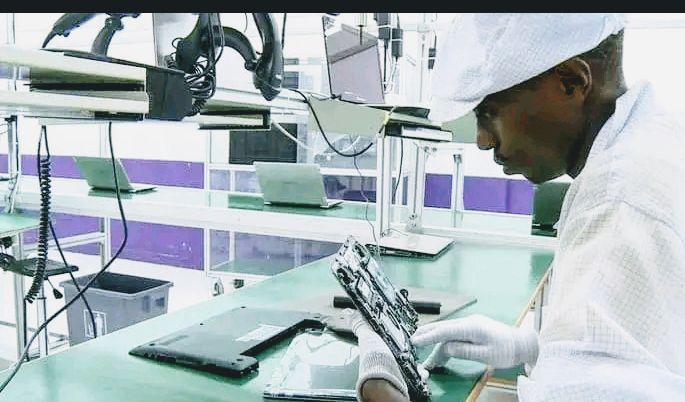
By Chris Muhizi for Minembwe Capital News Monday June 25th/2023.
The advanced technological capabilities of Rwanda encourage the nation to envision “Made in Africa.” As the first phone in Africa, the Mara phone seeks to provide top-notch
cellphones that encourage digital inclusion. Mara Phones creates top-notch cellphones with the goal of promoting digital inclusion while using technology to better the lives of people in Africa. Says #Weare Africans.
Mara Phones was established in 1996 by Ashish Thakkar and is a part of the Mara Group, a thriving African conglomerate with interests in infrastructure, real estate, finance, and technology.
Rwanda is utilizing its technological capabilities to transform itself from a developing country to a developed one. The goal of Rwanda’s president, Paul Kagame, is to make his country the technological hub of Africa, comparable to Singapore.
Following in the lines of the late Lee Kuan Yew, who is credited with converting Singapore from a developing country status, Kagame has been comparing the two nations for years. They have gained recognition as the 20th century’s “master builders” on a worldwide scale along with his successors.
A satellite program to monitor water supplies and foresee natural calamities is one of the Rwandan government’s Stellar Ambitions. The Rwa-Sat-1 satellite, launched in 2019, was Rwanda’s first communications satellite. Presently, the satellite gathers information from terrestrial sensors to provide the government with data on agriculture, meteorology, the availability of the nation’s water resources, and the risk of disasters.
Only 13 African nations currently have explicit laws on e-waste, including Rwanda. In 2016, Rwanda’s law was rewritten to remove standard guidelines for disposing of obsolete electrical equipment and allocating responsibilities in this regard among the country’s many agencies.
The alleged Enviroserve Rwanda Green Par e-waste management facility launched in 2020. Enviroserve provides services including remodeling, repurposing, and recycling of hardware, including old cell phones, computers, and other appliances. According to the World Economic Forum, Rwanda has also been leading the East African Communications Association (EACO)’s regional e-waste program alongside Burundi, Kenya, South Sudan, and Tanzania.
One of the first countries in Africa to introduce a countrywide drone delivery system was Rwanda. Using drones to carry medical supplies instead of more traditional means has allowed Rwanda to cut expenses and service time delays. In order to expedite blood supplies, Rwanda’s government agreed to a partnership with Zipline, a San Francisco-based drone firm, in 2016. The autonomous drones from Zipline would move blood from a warehouse to a medical facility.
Rwanda is one of the continent’s innovators in the creation of smart cities. The modernisation of Kigali is a component of a wider project by the Rwandan government to enlarge and improve access to public services. The government’s Irembo platform aims to create electronic services that will let citizens submit birth registration requests.
In order to “improve the lifestyle and social sustainability of its citizens,” the Rwandan government formed a cooperation with Nokia and SRG to adopt smart city technology. For instance, the city started deploying buses with free Wi-Fi and cashless payment options in 2016.
To make it simpler for Rwandans to receive doctor or nurse consultations, the country’s government has implemented AI-powered chatbots in the healthcare sector. The advanced technology used in Rwanda makes this possible. Patients can now complete 4,000 consultations every day from anywhere in the country using just a mobile device. The program is being used by Babylon’s nurses to boost output and guide better patient care decisions.





